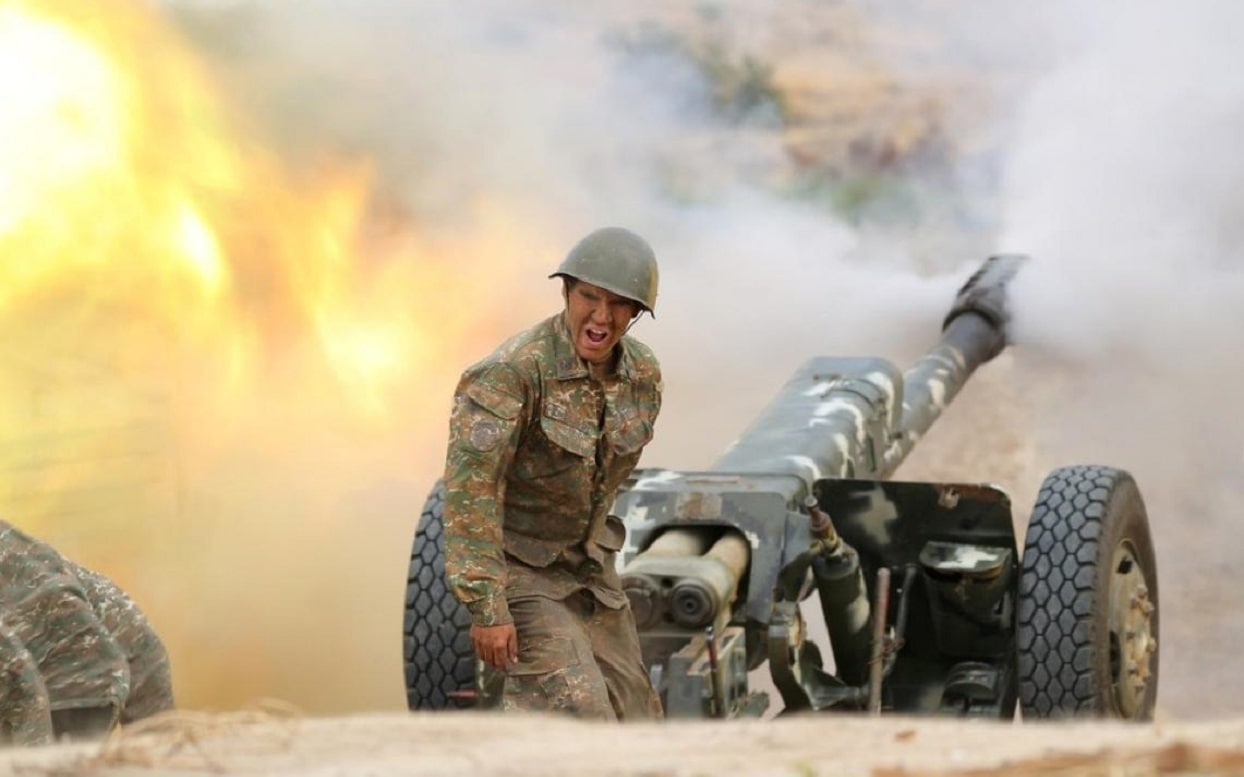Azerbaijan’s blockade of the Lachin corridor on Thursday will mark its one-month anniversary. Azerbaijani officials and Baku’s partisans have made a series of arguments: First, they denied the existence of any blockade. Second, they said that environmental activists acted independently out of frustration with the pollution caused by Armenian goldmining. Third, they said the blockade of the Lachin corridor is necessary to stop the transfer of Armenian arms to Artsakh. Finally, they argued that the November 2020 ceasefire in the second Nagorno-Karabakh War ties free passage through Lachin to the opening of the Zangezur corridor.
All these arguments are false. Azerbaijani propaganda, like that of Eritrea, Turkmenistan, and North Korea, is often at sharp dissonance with reality.
That more than 100,000 civilians starve due to a blockade Baku said did not exist is an insult to reality and a sign of President Ilham Aliyev’s growing detachment from it. The idea that Azeri eco-activists act independently to curtail pollution is also farcical. Azerbaijan bans independent civil society. Radio Free Europe/Radio Liberty conducted an analysis of photographs of the environmental protestors and identified them as repeated cheerleaders for both Aliyev and Azerbaijan’s unilateral military action. Nor is there any evidence that Armenia has transferred landmines into Artsakh. The U.S. and United Kingdom-funded Halo Trust conducts demining in Nagorno-Karabakh.
That Azerbaijan now seeks to hamper their efforts suggests Aliyev may once again be confusing perpetrator and victim. Notably, Azerbaijan has provided no evidence to back its statements. The 2020 ceasefire agreement to which Aliyev agreed declared, “The Republic of Azerbaijan guarantees the safety of traffic along the Lachin corridor of citizens, vehicles and goods in both directions.” The current blockade is a clear violation.
While the agreement also specifies the creation of transport links between western Azerbaijan and the Nakhichevan Autonomous Republic, these are to be the subject of negotiation rather than imposition. That there is no direct transport into Nakhichevan is due to Aliyev’s decision to maintain a blockade of Armenia, although Azerbaijan currently builds a trade corridor though Iran. In May 2021, I drove along the Armenian frontier with Nakhichevan. Azerbaijan had used bulldozers to block roads with mounds and ditches, and set up machine gun nests to keep traffic away. Should Azerbaijan unblock roads and lift its blockade, commerce could flow.
International law is complicated but even the blanket recognition of Azerbaijan as sovereign over the entirety of Nagorno-Karabakh does not give it the opportunity to starve the population. Indeed, while Azerbaijani diplomats say Azerbaijan will protect Armenians in Nagorno-Karabakh as their own citizens and that Armenians need not fear discrimination (or worse) because of their ethnicity, the current siege belies this. The simple reality is that Azerbaijan openly starves and seeks to punish collectively the very people their diplomats promise they will protect. The dissonance between Aliyev’s rhetoric and actions would be akin to Russian President Vladimir Putin demanding Ukrainians should trust him as he continues to seek their slaughter.
For decades, the Minsk Group based its diplomacy on confidence building and the concept of land for security. Aliyev’s increasing bombastic statements on Azerbaijani television threatening to invade Armenia proper shred any remaining confidence.
Biden may not mean to greenlight starvation as statecraft, but U.S. neglect of the South Caucasus has a cost. That the U.S. co-chairmanship of the Minsk Group goes vacant at this critical time as Philip Reeker rotates on after just six months is inexcusable State Department malpractice. So too is the U.S. Embassy in Baku’s refusal to send its own monitors to Lachin.
As Aliyev shreds Minsk group understandings, perhaps it is time the United States takes a fresh approach. Aliyev’s willingness to murder 100,000 citizens he considers his own should lead the United States to question hit fitness and legitimacy as a leader. As Aliyev suggests “the border will go where we think it should be,” perhaps the United States should also embrace such flexibility to determine where it recognizes the border and, more specifically, whether it should continue to consider Nagorno-Karabakh as legally belonging to Azerbaijan.
Dr. Michael Rubin is a senior fellow at the American Enterprise Institute, where he specializes in Iran, Turkey, and the broader Middle East.

